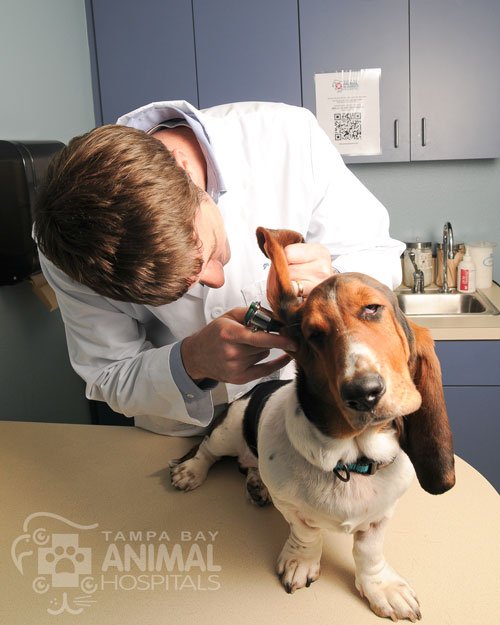5 Facts About Ear inflammation and Infection in Dogs

“Otitis externa” is the fancy medical term for inflammation or infection of your pet’s outer ear canal. Here are some things some folks believe about recurring ear problems … and the facts.
You might think … “All ear infections are the same, so I can use the same medicine that worked the last time.”
Fact! The veterinarian needs to examine a pet for each ear infection to determine the cause. Ear infections can be caused by a variety of bacteria and yeast, and the treatment recommendations and medications selected will depend on the specific infection and contributing factors. What’s more, the veterinarian needs to examine the pet to determine whether this infection has shown up before or wasn’t resolved.
You might think … “If I pluck the hairs out of my dog’s ears, my dog will never get another ear infection.”
Fact! You should avoid hair plucking if the hair isn’t causing a problem. Experts don’t recommend routine hair plucking, because it can cause inflammation.
You might think … “My dog has an ear infection, because he caught it from another animal.”
Fact! Ear infections often occur secondary to inflammation in the ear, which may be a symptom of an underlying condition such as allergies. When the environment in the ear is altered, bacteria or yeast can cause infection. These infections aren’t caught from another pet.
You might think … “My dog scratches, licks, or chews because he’s bored, grooming himself, or imitating the family cat.”
Fact! Scratching, licking and chewing are signs of an itchy, allergic dog. If you notice these symptoms, schedule an appointment with the veterinarian. What does this have to do with otitis externa? Allergies are one of the most common causes of ear inflammation and infection. And if a dog is showing signs of allergies, it should have its ears checked too.
You might think … “My dog’s ears will be cured so he’ll never get another infection.”
Fact! This may be true if the ear infection didn’t occur due to an underlying problem. But if allergies were the culprit, the ears will be managed along with the allergy over your pet’s lifetime. Your veterinarian needs your help to keep watch over the ears and may ask you to clean them regularly to help prevent inflammation and infection.
If you think your dog’s ears may be inflamed or infected, please contact us to schedule a check-up!
Info courtesy of Firstline- Behavior (11)
- Caring for your pet (263)
- cat (4)
- Community Events (19)
- dog (6)
- From Our Clients (15)
- Happy Tails (8)
- News (418)
- Press (53)
- Products (2)
- Questions (4)
- Recalls (1)
- Special Offers (5)
- Tips & Advice (231)
- Uncategorized (19)
- Veterinary Services (48)


